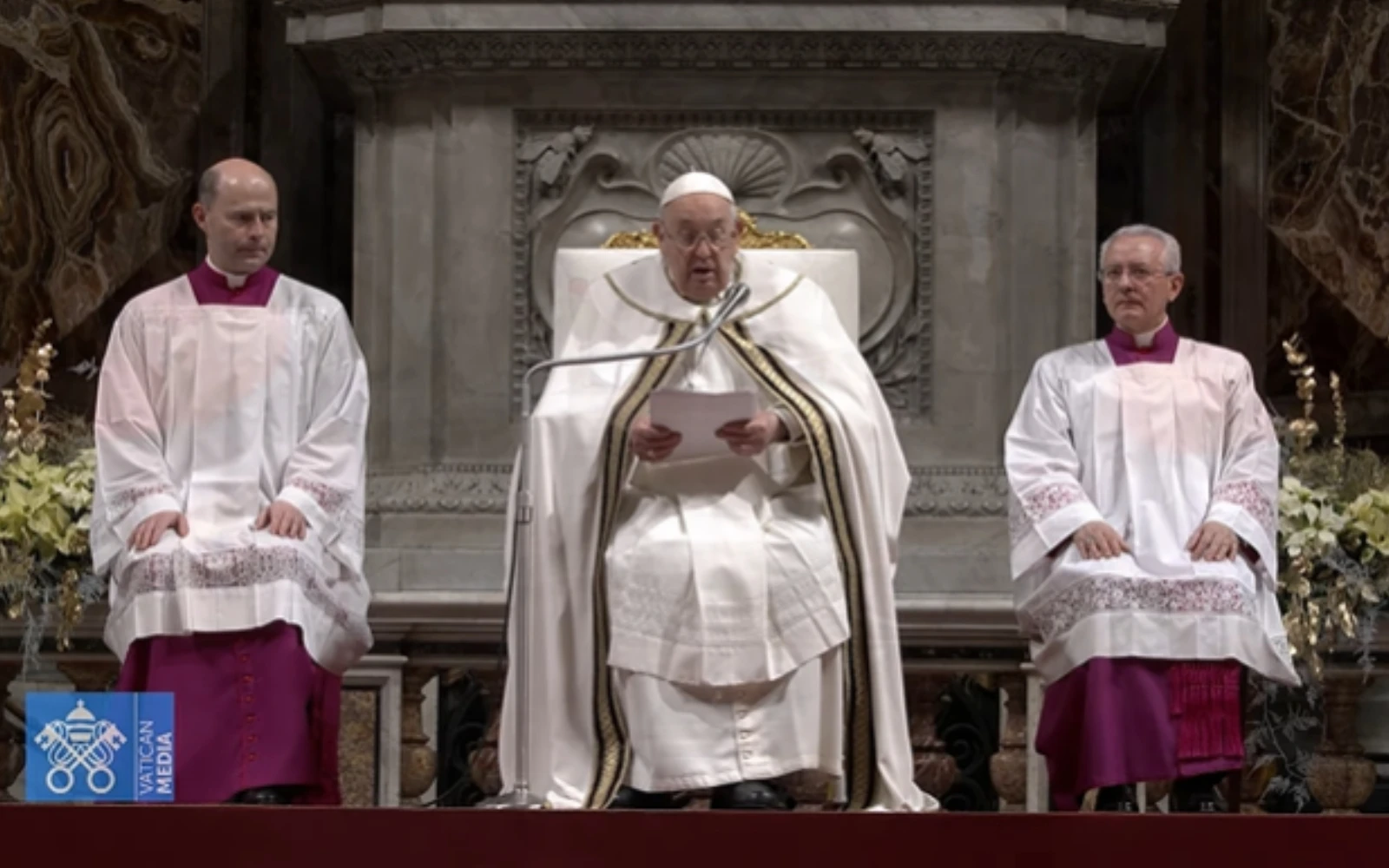Next, he asked those present in St. Peter’s Basilica “what God do we believe in? In the God of the incarnation or in the God of benefit?”, warning about the temptation to live Christmas with a pagan vision of God as a being “who allies himself with power, with worldly success and with the idolatry of consumerism ”.
The Holy Father called to rediscover the deep meaning of Christmas, moving away from the image of a distant and controlling God. “He was born for all, during the census of the whole earth,” he stated.
“Let us look, therefore, to the ‘living and true God’ (1 Ts 1.9); to Him, who is beyond all human calculation and yet allows Himself to be counted by our calculations; to Him, who revolutionizes history by inhabiting it; to Him, who respects us to the point of allowing us to reject Him; to Him, who erases sin by taking it upon himself, who does not remove pain, but transforms it; that he does not eliminate problems from our lives, but rather gives our lives a hope greater than the problems. He so desires to embrace our existence that, being infinite, he becomes finite for us; being great, it becomes small; being fair, live our injustices,” he said.
And he added: “This is the wonder of Christmas: not a mixture of honeyed affections and worldly consolations, but the unprecedented tenderness of God who saves the world by becoming incarnate. Let us look at the Child, let us look at his cradle, let us contemplate the manger, which the angels call the ‘sign’ (Lc 2,12). It is, in fact, the sign that reveals the face of God, who is compassion and mercy, omnipotent always and only in love.
